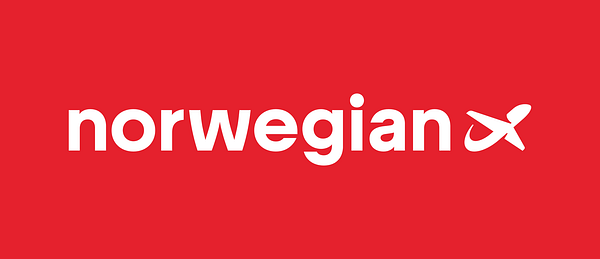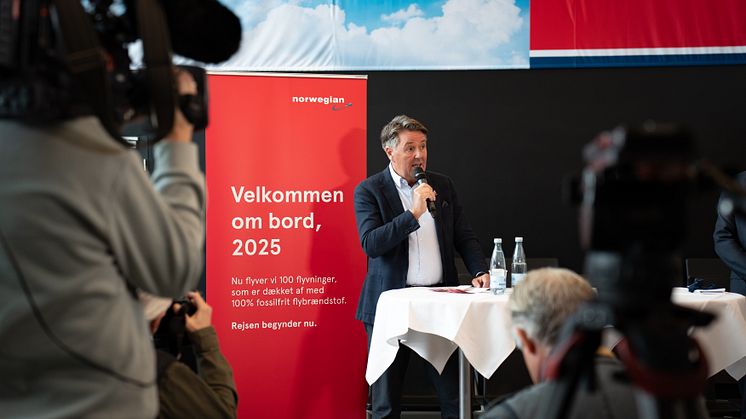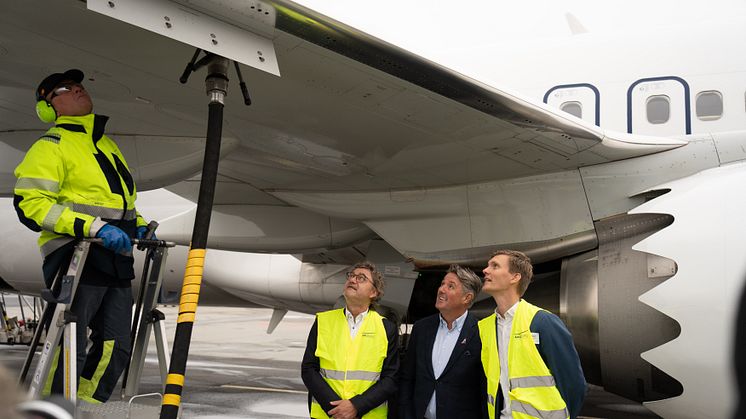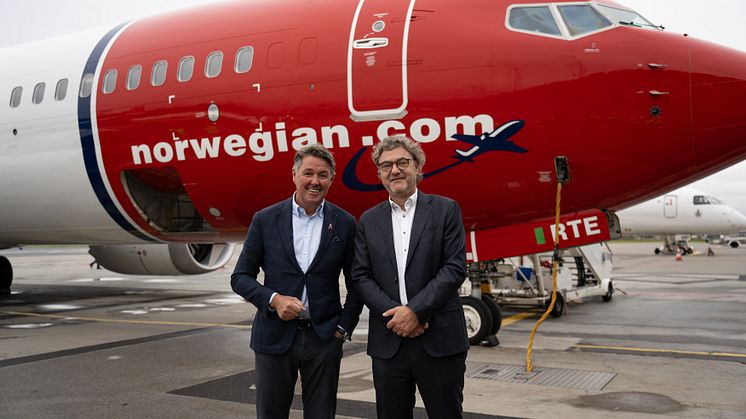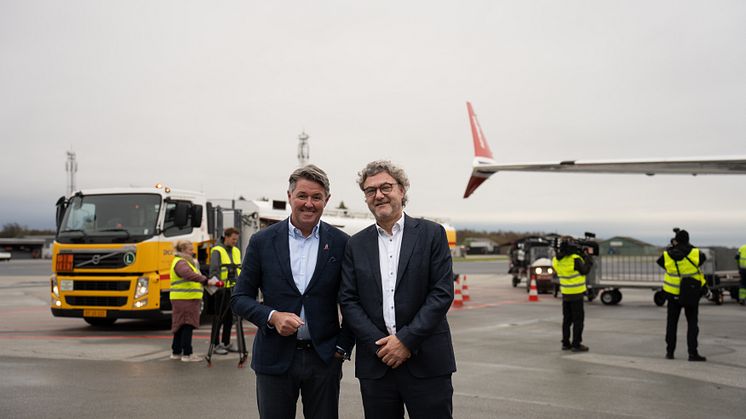
Press release -
Norwegian introduces fossil-free aviation fuel equivalent to 100 flights on Denmark’s busiest route between Aalborg and Copenhagen
Norwegian is to purchase fossil-free aviation fuel to power the equivalent of 100 flights between Aalborg and Copenhagen. The initiative proves that reducing the climate footprint of Danish aviation is already possible today.
The Danish government announced its goal to have one “green domestic route” in Denmark by 2025. Norwegian, together with Aalborg Airport, are proving that operating flights with fossil-free aviation fuel, also known as SAF, on a large scale is already possible today.
Aircraft today are limited to a 50 percent blend of fossil-free fuel and conventional aviation fuel. Due to this limitation Norwegian has chosen to purchase the amount of fuel needed for the 100 flights with fossil-free fuel and to have it delivered to Aalborg Airport’s facilities. This allows Norwegian to introduce fossil-free aviation fuel on Denmark’s busiest domestic route between Aalborg and Copenhagen. The initiative is another step towards the airline’s ambition to reduce emissions by 45 per cent before 2030. Earlier this year Norwegian announced that the airline had partnered with Norsk e-Fuel to build the world’s first full-scale electro-fuel plant.
Geir Karlsen, CEO of Norwegian, took part in the opening event at Aalborg Airport today.
“There has long been a focus on how domestic aviation in Denmark can make use of more sustainable aviation fuel, both in the short and long term. Our initiative to fly the equivalent of 100 fossil-free flights within Denmark is a strong demonstration that this is possible within the existing infrastructure today. However, in order to make fossil-free flights common practice by 2025, the availability of fossil-free aviation fuel needs to increase drastically from the limited amounts of fuel available today,” says Karlsen.
Aalborg Airport will receive its inaugural delivery of fossil-free fuel from DCC & Shell Aviation Denmark*. The consumption on the 100 flights equals a total of around 140 metric tons. The use of fossil-free fuel over the next two weeks corresponds to a reductions of Norwegian’s CO2 emission by up to 80 percent on the route between Aalborg and Copenhagen. Over the course of a year, Norwegian operates approximately 2,200 flights between Aalborg and Copenhagen, consuming around 3,000 metric tons of aviation fuel. If the equivalent amount of fossil-free aviation fuel were to be introduced on all flights over a year, carbon emissions would be reduced by close to 10,000 metric tons (from a life-cycle perspective).
Aalborg Airport will receive a direct supply of fossil-free fuel for the very first time as a result of the introduction of fossil-free aviation fuel on domestic flights between Aalborg and Copenhagen.
“Aalborg Airport is pleased that Norwegian has chosen us as a partner for this initiative. Sustainable aviation fuel is the future of all aviation. As an airport, we assist with the infrastructure in this project and expect that it can contribute to Denmark's first green domestic route also being set up from Aalborg Airport in 2025," says Niels Hemmingsen, Managing Director at Aalborg Airport.
Fossil-free aviation fuel – this is how it works
Fossil-free aviation fuels are also called Sustainable Aviation Fuels (SAF). These fuels are a more sustainable alternative to fossil-based jet fuel. SAF is currently produced from bio waste and residual products, such as used cooking oil and animal fat. In the future, PtX-based SAF (Power-to-X) is expected to be able to produce significantly larger quantities, and even more sustainably, by converting electricity from solar and wind power into liquid forms of energy.
DCC & Shell Aviation Denmark are delivering approximately 140 metric tons of fossil-free fuel which is then blended with conventional jet fuel in accordance with current SAF blending rules. This delivery of fossil-free jet fuel is stored within Aalborg airport’s central fuel infrastructure and will be used by all aircraft using the airport’s fuel services.
By purchasing SAF needed for 100 flights between Aalborg and Copenhagen, the consumption of fossil fuel and thus carbon emissions are reduced. This is the most efficient way to fulfill the Danish government’s wish for a sustainable domestic aviation route.
*The views expressed in this release or statement are made by DCC & Shell Aviation Denmark, and are not made on behalf of, nor do they necessarily reflect the views of, any company in the Shell Group of Companiess.
For more information:
Charlotte Holmbergh, Director of Communications, Norwegian charlotte.holmbergh@norwegian.com, +46 709 89 05 18

Geir Karlsen, CEO of Norwegian, took part in the opening event at Aalborg Airport today.
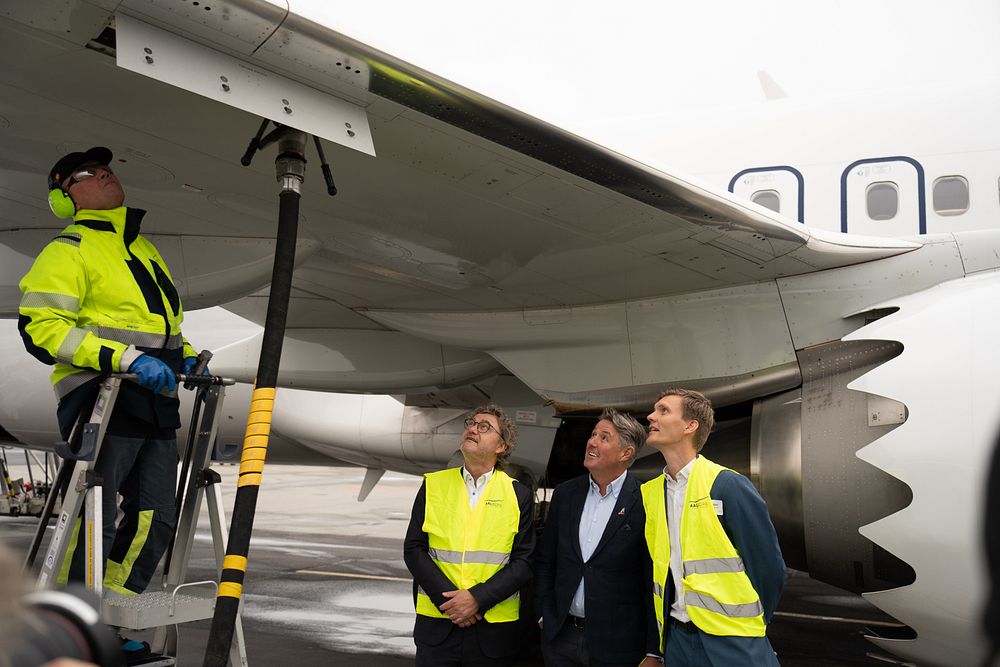
Niels Hemmingsen, Managing Director at Aalborg Airport, Geir Karlsen, CEO at Norwegian, and Lasse Frimand Jensen, Mayor of Aalborg Municipality (from left to right) inspected the fueling of the aircraft.

Geir Karlsen, CEO at Norwegian and Niels Hemmingsen, Managing Director at Aalborg Airport (from left to right) met during the opening event at Aalborg Airport today.
Topics
Categories
About Norwegian
Norwegian is the largest Norwegian airline and one of Europe’s leading low-cost carriers. The company has around 4,500 employees and offers a comprehensive route network between Nordic countries and destinations in Europe. Since 2002, more than 300 million passengers have flown with Norwegian. The most important task has been to offer affordable plane tickets to all and to offer more freedom of choice along the journey.
Norwegian is a driving force for sustainable solutions and the transformation of the aviation industry. The company’s goal is to reduce its CO2 emissions by 45 percent within 2030. To this means, the company is renewing its fleet, promoting sustainable aviation fuel, reducing its waste, and using wind and weather data to calculate the most efficient fuel-saving flights routes. Norwegian wants to become the sustainable choice for its passengers.
